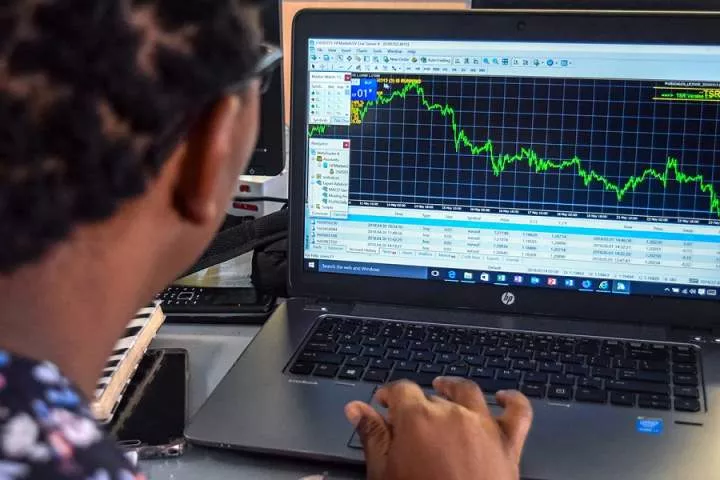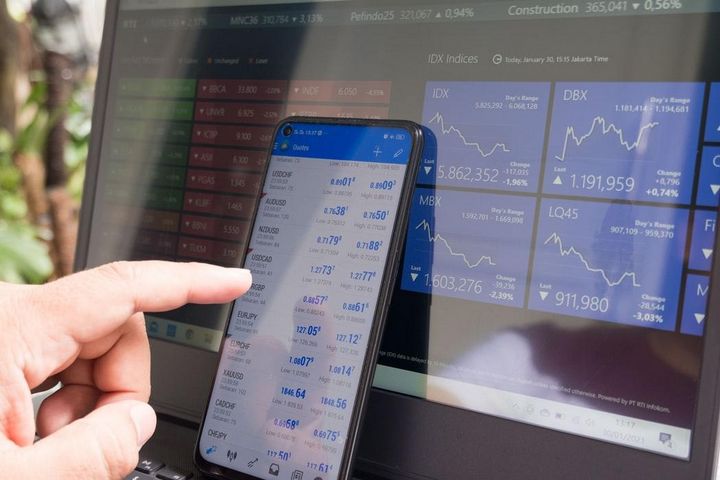
Trading in financial markets offers the potential for substantial profits, but it also comes with significant risks. Many traders, particularly beginners, often fall into traps that can lead to losing their hard-earned money. To succeed in trading, it's crucial to recognize and avoid these common mistakes. This article will highlight key pitfalls traders should steer clear of to protect their earnings and improve their chances of long-term success.
Trading Without a Clear Plan
One of the biggest mistakes traders make is diving into the market without a well-defined trading plan. A trading plan is your roadmap, outlining your strategy, risk tolerance, and goals. Without a plan, you're more likely to make impulsive decisions based on emotions rather than logic. This can lead to inconsistent trading and significant losses.
Your trading plan should include criteria for entering and exiting trades, the amount of capital you're willing to risk, and specific strategies for different market conditions. Sticking to your plan, even when emotions are running high, is essential for maintaining discipline and consistency in your trading approach.
Overleveraging
Use permits dealers to control a huge position with a generally little sum of capital. Whereas this could increase benefits, it moreover amplifies misfortunes. Overleveraging is a common mistake, particularly among traders looking to make quick gains. However, this approach can quickly backfire, wiping out your account with just a few bad trades.
To avoid this, it's important to use leverage cautiously. Stick to a leverage ratio that aligns with your risk tolerance and trading experience. Remember, leverage is a double-edged sword, and it's better to trade with less leverage and preserve your capital than to risk losing everything in one trade.
Ignoring Risk Management
Chance administration could be a foundation of fruitful exchanging, however numerous dealers neglect it in interest of higher benefits. Failing to manage risk can lead to significant losses, even if your trading strategy is otherwise sound. Key aspects of risk management include setting stop-loss orders, diversifying your trades, and not risking too much of your capital on a single trade.
A common guideline is to risk no more than 1-2% of your total capital on any given trade. This way, even if a trade goes against you, your overall account remains protected. Stop-loss orders are also essential, as they automatically close a trade when the market moves against you by a certain amount, helping to limit your losses.
Letting Emotions Drive Decisions
Emotions like fear, greed, and hope are natural but dangerous in the context of trading. When emotions take over, traders often abandon their strategies and make impulsive decisions. For instance, fear might cause you to exit a trade too early, while greed could make you hold onto a losing position in the hope that the market will turn around.
The key to avoiding emotional trading is to stay disciplined and stick to your plan. If you find yourself reacting emotionally, take a step back and reassess the situation objectively. It's also helpful to keep a trading journal where you record your trades and emotions during the trading process. Reviewing this journal can help you identify emotional patterns and work on controlling them.
Chasing Losses
Another common mistake is chasing losses. After a losing trade, many traders feel compelled to immediately recover their losses by entering new trades, often without proper analysis. This behavior, known as "revenge trading," usually leads to further losses because decisions are driven by frustration rather than strategy.
To avoid this, it's important to accept losses as part of the trading process. Every trader experiences losses, and what matters is how you respond to them. Instead of chasing losses, take time to analyze what went wrong and learn from the experience. Sometimes, it's better to take a break and return to the market with a clear mind rather than making hasty decisions.
Overtrading
Overtrading is the practice of placing too many trades in a short period, often in an attempt to increase profits quickly. However, this approach is usually counterproductive. Overtrading can lead to high transaction costs, increased risk, and mental fatigue, all of which can erode your profits.
The solution is to focus on quality over quantity. It's better to make a few well-considered trades based on solid analysis than to place numerous trades without a clear rationale. By being selective with your trades, you can reduce the likelihood of making mistakes and increase your chances of success.
Failing to Adapt
Markets are continually changing, and what worked recently might not work nowadays. Failing to adapt to new market conditions is a mistake that can result in losses. Successful traders are those who continually learn, adjust their strategies, and stay informed about market developments.
To avoid this mistake, regularly review your trading performance and be willing to adjust your strategies when necessary. Stay informed by following market news, studying economic indicators, and learning from other traders. Continuous improvement and adaptation are key to long-term success in trading.
Conclusion
Trading can be a rewarding endeavor, but it requires discipline, patience, and a well-thought-out approach. By avoiding common mistakes such as trading without a plan, overleveraging, ignoring risk management, letting emotions drive decisions, chasing losses, overtrading, and failing to adapt, you can protect your earnings and increase your chances of success. Remember, in trading, it's not just about making money; it's also about preserving the capital you've worked hard to earn. With careful planning and disciplined execution, you can navigate the challenges of trading and achieve your financial goals.















Comments